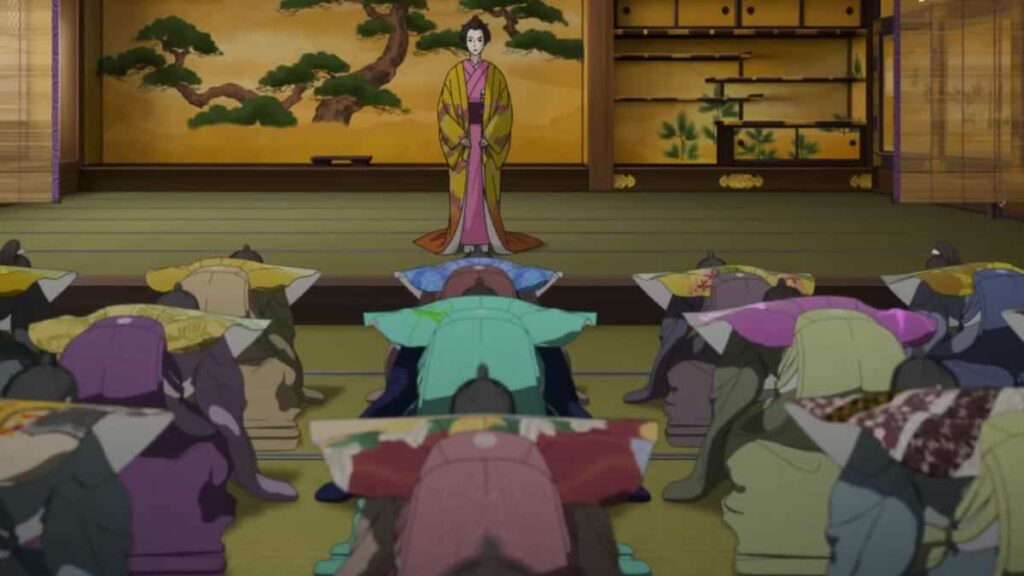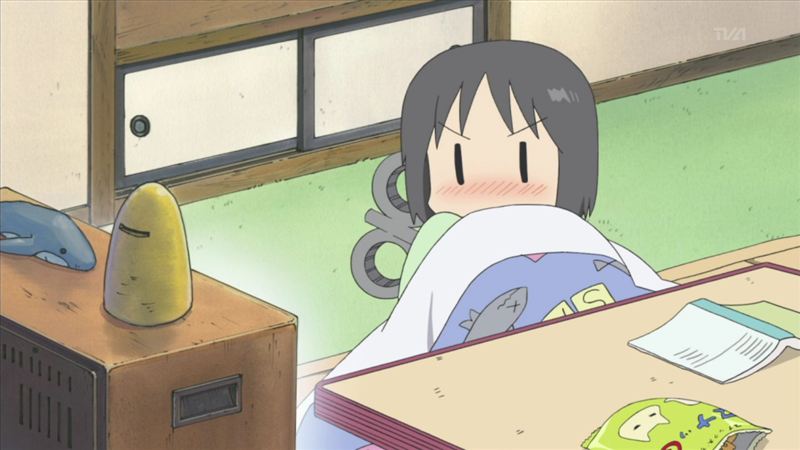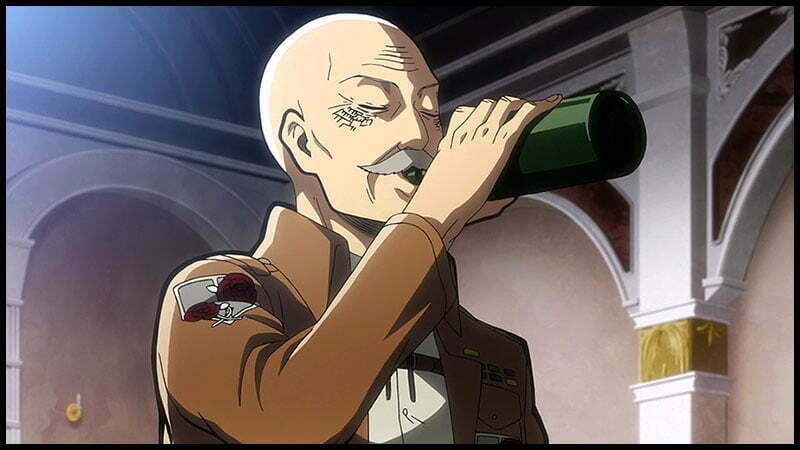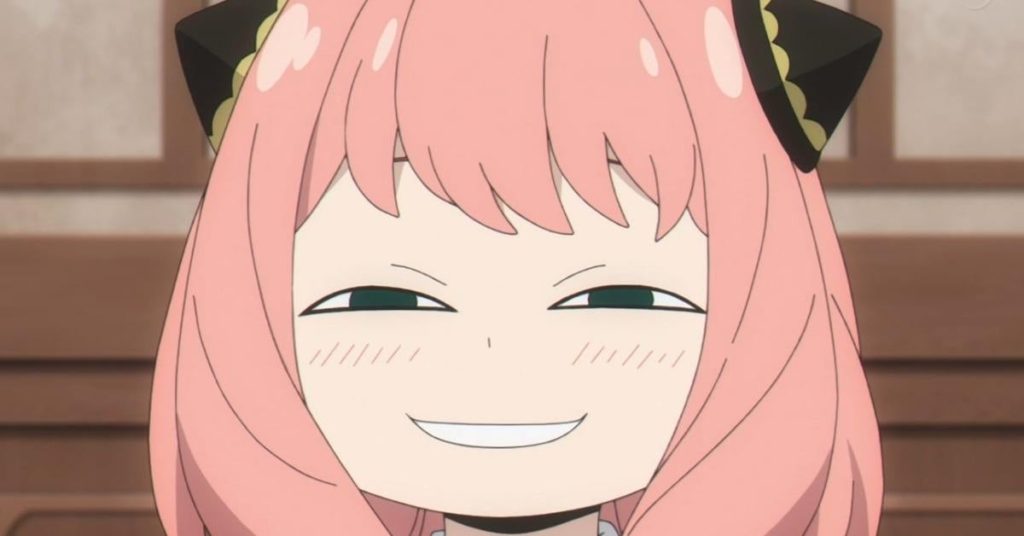No matter how you look at it, we have an interesting world on our hands. Humanity may only be a blip in the planet’s own history, but we have created a rich history of our own rife with monumental – and complicated – events. Sometimes it is an interesting thought process to think about where the world would be if some of those events had gone just a bit differently.
While anime is a flexible medium filled to the brim with creative stories, profoundly little anime actually works with the concept of alternate history. It is easier to just create a wholly fictional world than to try to wedge a story into actual human history.
While alternate history anime isn’t as popular as you might think, check out these anime recommendations that do try to weave our history with their fictional stories in a creation of alternate history.
Alternate History Anime
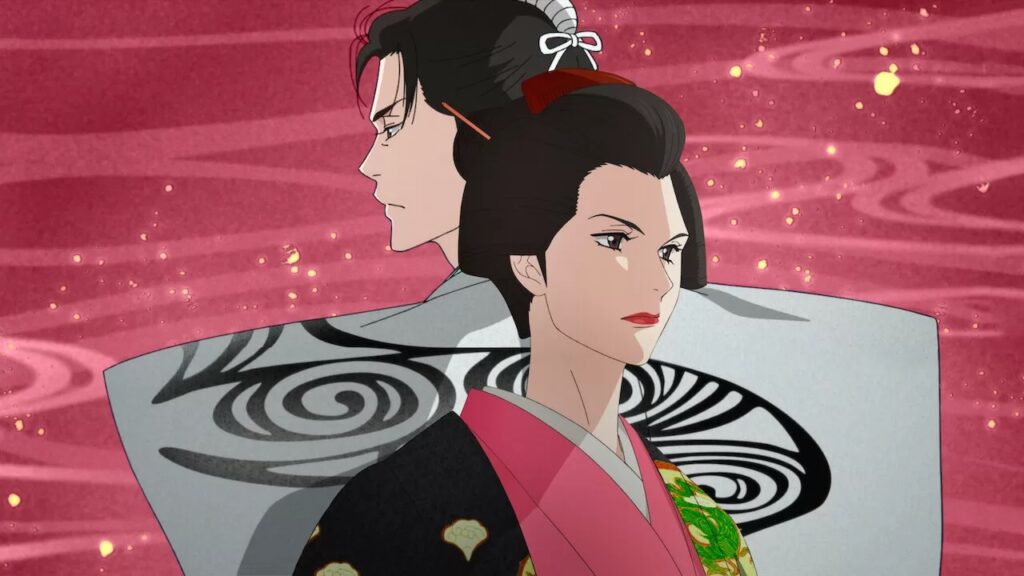
Ooku: The Inner Chambers
What if most men died out in Feudal Japan and women took over male gender roles?
Ooku poses an interesting meditation on gender roles in what is perhaps the best alternate history anime experience you will find.
It follows a version of smallpox that only infects men and has a high mortality rate that led to about 3/4ths of the male population of Japan dying out in the middle of the Edo Era. Following that, women start to take up the roles traditional held by men in order to keep society from crumbling. Merchants passed on their businesses to the daughters. Lords passed their titles onto daughters. Women start to work the fields so people didn’t starve. Men, on the other hand, take on the role of prostitutes for breeding, and husbands become a status symbol of the wealthy.
However, while Ooku may sound like a feminists’ wet dream, it does provide a serious and detailed exploration of its concept as well as a gripping tale of historical intrigue.
Interestingly enough, while the anime hasn’t quite adapted the story far enough yet, Ooku explores the concept of “history being written by the victors” and alludes that the entire plot of the series could have been a very real period of Japanese history. It also cleverly uses real historical events to push that as well.

Astra Lost in Space
What if the Cuban Missile Crisis caused World War III?
When it comes to sci-fi space series, no one is too caught up in the historical details. They can set it in a completely separate timeline and no one would give it a second glance. However, Astra Lost in Space does take a small portion of time to establish the back story as to how humanity advanced to the point where it is normal for school children to take school camping trips to other planets.
In Astra Lost in Space’s version of alternate history, mismanagement of the already-mismanaged Cuban Missile Crisis led to full-on World War III breaking out. The conflict led to a significant loss of human life, and forced the remnants of humanity to create a more united and collaborative universal society. What do you get when nations work together as one instead of against each other? Space travel where school kids go camping on other planets and the biggest social issue is the ethic concerns of cloning.
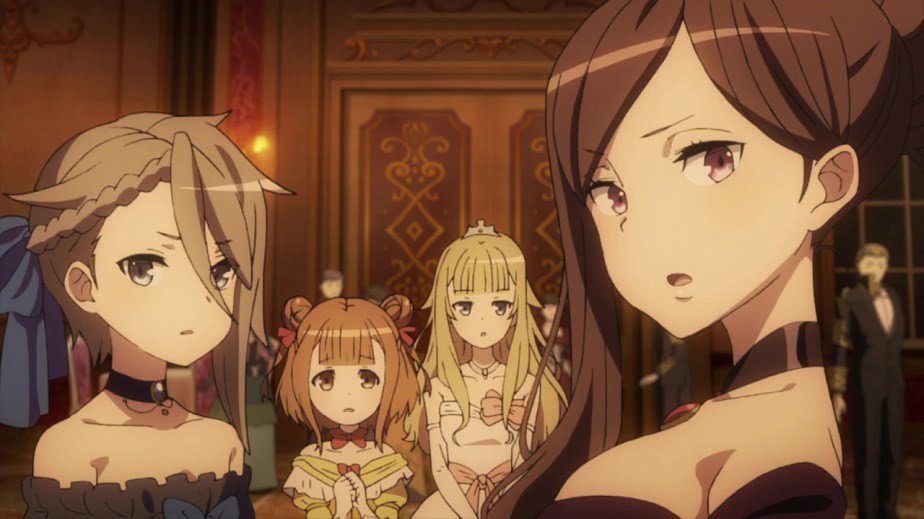
Princess Principal
What if a new substance was discovered that advanced military technology and lead to a divided United Kingdom?
The whole “new mineral fostering rapid advancement” is almost as popular as “aliens uniting humanity” when it comes to alternate history anime. Princess Principal does it with flair by creating a alternate history version of London that still mirrors a Post-War era where espionage became the most valuable weapon of every nation.
Of course, this series focuses less on the history of the world and more on cute anime girls doing surprisingly gripping spy things. Although, thankfully this series takes itself quite seriously and isn’t just another Cute Girls Doing Cute Things comedy with a spy twist.
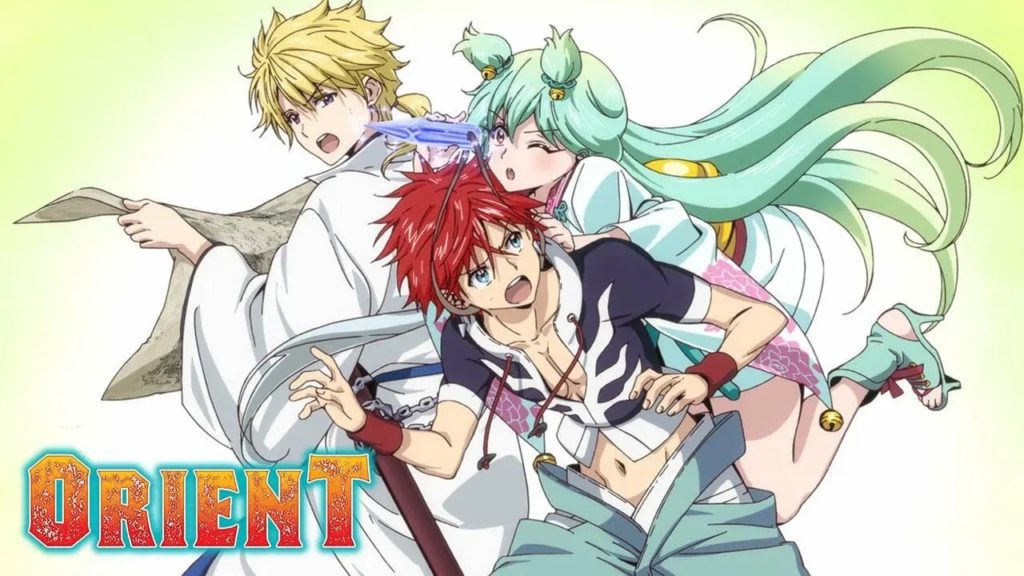
Orient
What if demons descended on Feudal Japan and gas-lit everyone into thinking the Samurai fighting to defend them were bad?
Although Orient is a shounen battler, it embraces some alternate history in its setting instead of simply making it an all-fictional world.
The series follows a Japan that was invaded by demons. The ruling class of lords and samurai of course tried to fight back, but demons were powerful and eventually pushed them back. Years of subjugation later, the common folk have been led to believe that samurai are bad and demons are good, despite toiling in miserable work for little reward and occasional death.
Of course, outside of that alternate history set up, Orient is all about rising up and becoming samurai to fight back against the demons, but it was an interesting new take to try and create a historical world shaped by fantasy events.
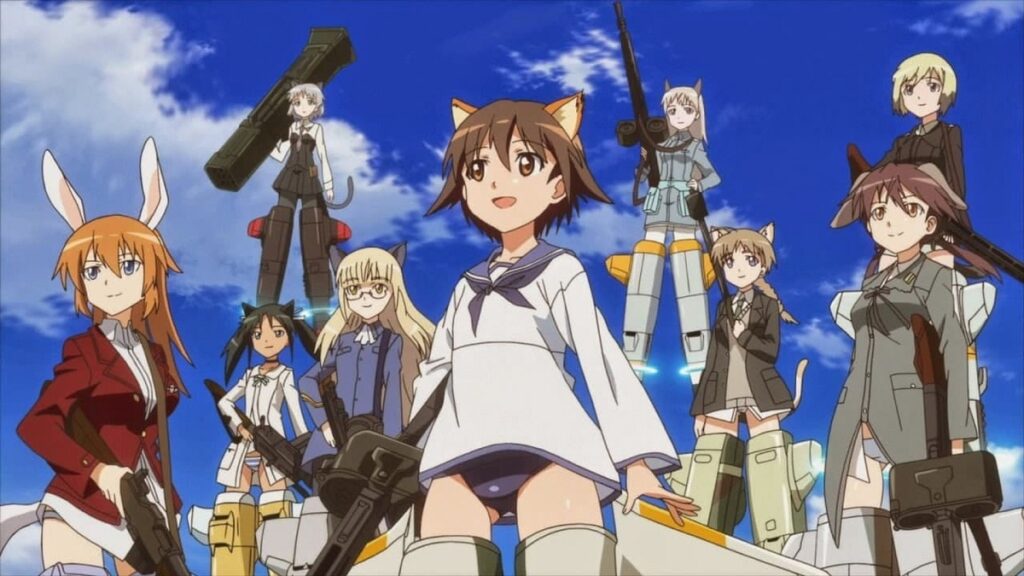
Strike Witches
What if the tensions of World War II were defused by invading aliens, forcing the world to have to unite instead?
Strike Witches takes alternate history and goes full anime with it. It takes a familiar “the enemy of my enemy is my friend” event, like aliens invading before the tensions of World War II pop off, and follows a world that unites against the common extraterrestrial enemy instead of slaughtering each other in the millions.
Of course, the most effective people at actually fighting the aliens are not so much the fighting men, but girls who use mechanical propulsion legs to fly through the sky and posses magical abilities that not only let them fight the aliens, but also cause them to sprout animal ears and tails.
So, magical cat-girl planes fighting aliens. See? It goes full anime.
While explaining the concept of Strike Witches makes it sound incredibly silly, this war anime does know how to hit hard with what it does with its characters.
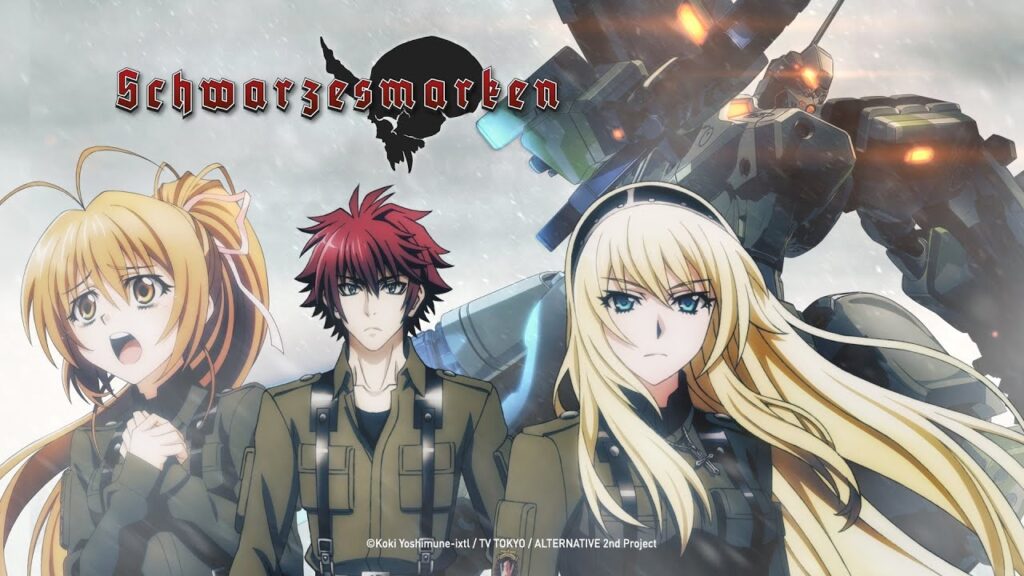
Schwarzesmarken
What if the Cold War was stopped by aliens invading?
In a very Strike Witches affair, Schwarzesmarken switches out World War II tensions for the decades-long stalemate that was the Cold War. While it happens in a different conflict, Schwarzesmarken provides the same sort of series.
Aliens attack, survival of the human race forces military advancements, the characters fight aliens in combat suits, and slowly push the aliens back – That’s Schwarzesmarken. However, what really sets Schwarzesmarken apart is that while they are winning against the aliens, the enemies of my enemy tend to not stay friends when the shared enemy starts to flounder. This means the main character need to navigate deadly alien battles and intrigues from within human forces.
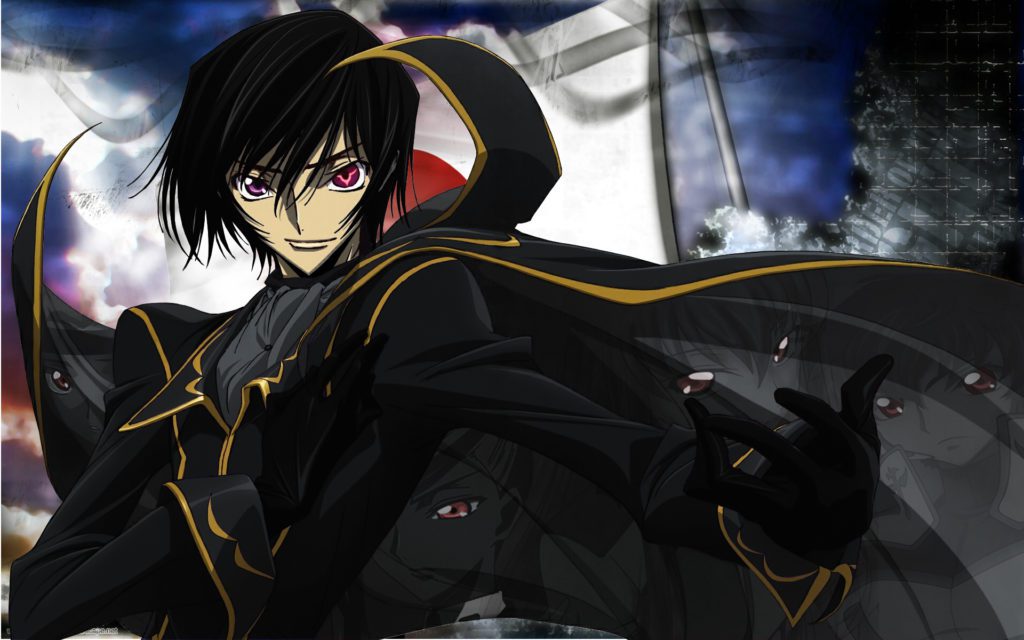
Code Geass
What if things just went great for Imperial England?
Code Geass and its chess-like tale of rebellion and mecha action doesn’t advertise its alternate history heavily, but it is all there in the finer details.
Code Geass has an element of fiction injected into the series with the discovery of a new material that serves as the energy source for the mechs, but it wasn’t just mechs that led to Imperial Britain taking over almost the entire world. In Code Geass’ surprisingly rich history it details how everything that led to the fall of England’s empire in real life just didn’t happen.
Elizabeth had male heirs to continue on with Tudor reign. That resulted in no King George and the American Revolution ultimately failing after Ben Franklin’s betrayal. The series features Napoleon taking over Britain, forcing the relocation of Britannia to North America, and then Britannia eventually taking over Napoleon’s crumbling European Empire, solidifying their hold over much of the world.
The history of the world is often zipped through to get back to the mecha action and political intrigue, but it provides an interesting extra layer of depth to the world.
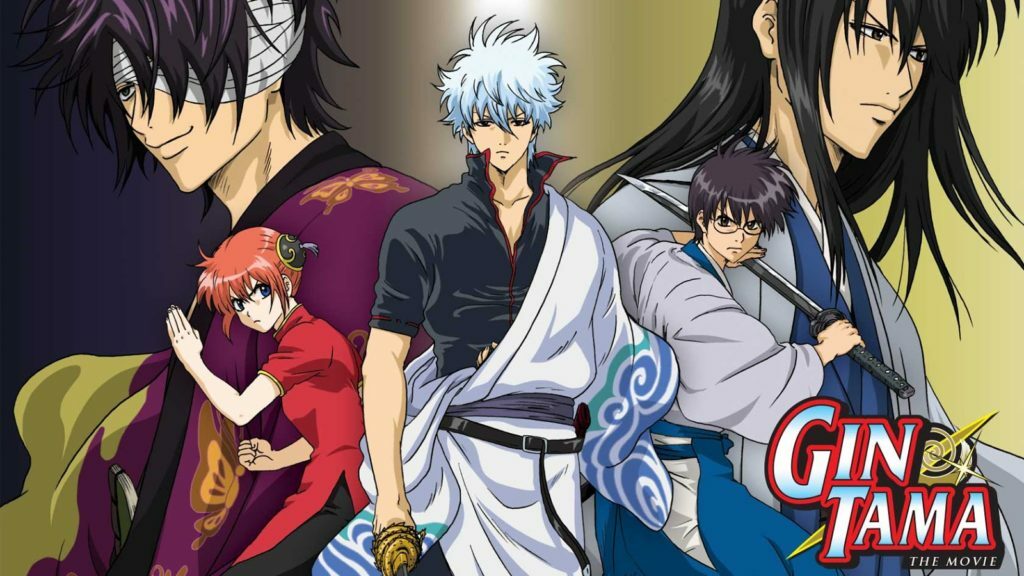
Gintama
What if Edo Era Japan met aliens before it met other foreigners?
Gintama is not the series people think of when they think of alternate history anime, but it is no less applicable. Hidden among its parody and silly shenanigans is a history that comically mirrors real history.
The time period that Gintama takes place in was a time period where the Portuguese Perry Expedition visited Japan to establish the first Western contact and trade routes. This would go on to cause Western cultural influence in Japan, rapidly advancing their technology and starting to change the shape of their culture before Japan adopted more isolationist policies. Gintama poses a world where aliens made it to Japan first and caused an even more rapid, and even more comical, advancement in technolgy – which is why you see so many modern things in Edo Era Japan.
So, hidden among the weirdness in Gintama are a surprising amount of historical parallels, which actually adds a good amount of depth to the series if you can get the references. However, getting every reference in Gintama is an exercise in futility.
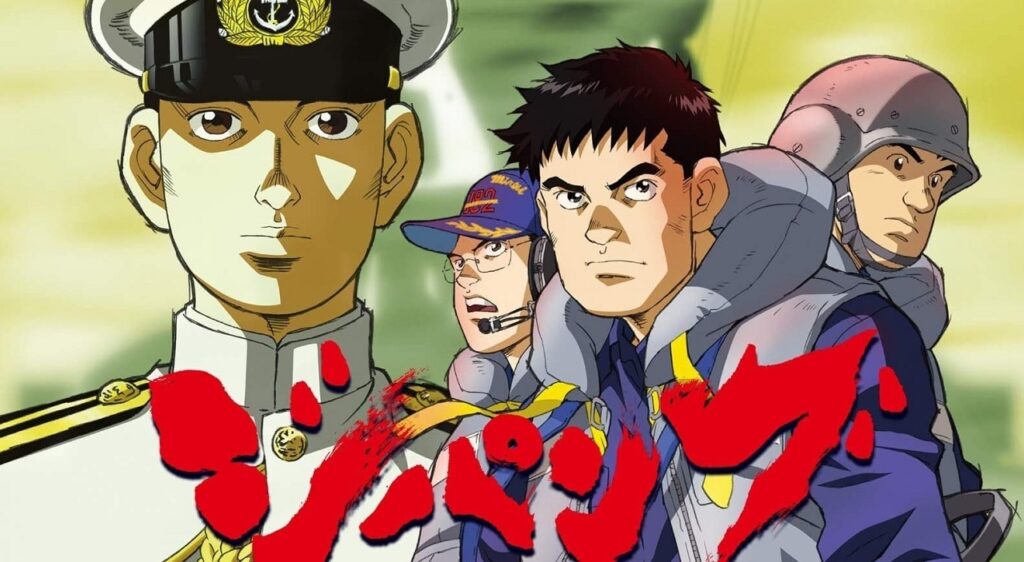
Zipang
What if a modern JSDF battleship was sent back to WW2?
While Zipang can occasionally rival Gate in its nationalistic military chest-beating, the series doesn’t actually go how you would expect it to.
Zipang is about a modern Japanese battleship going back in time to World War II, but it isn’t about them trying to turn the tides in Japan’s favor. In fact, Zipang is actually about them fighting those that do intend to change history.
As Japan didn’t have the most favorable outcome from the conflict, Zipang dives deep into the crew being split on whether they should or should not intervene, but it takes a surprising and mature approach to the concept.
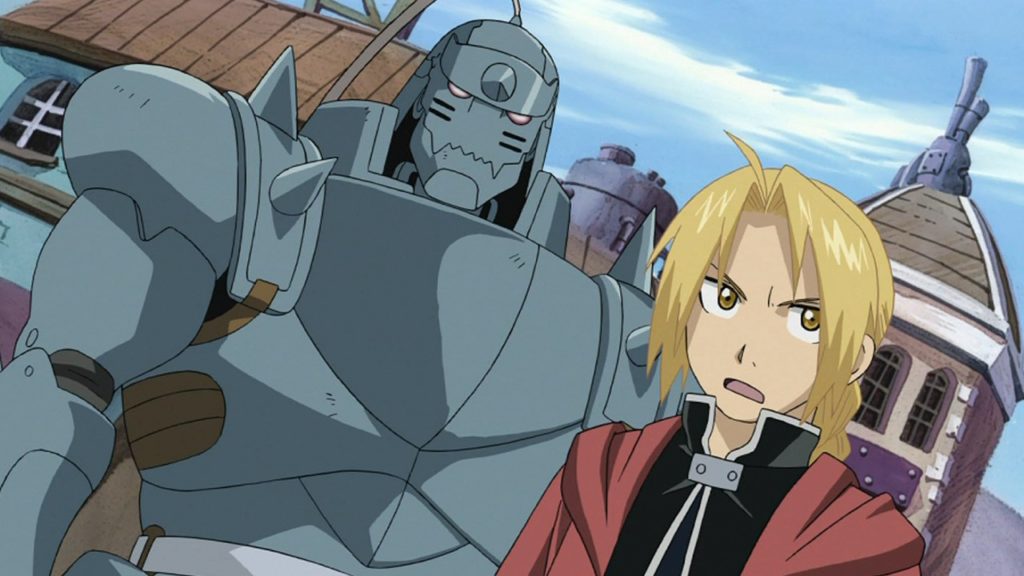
Fullmetal Alchemist
What if alchemy actually did work?
Like Code Geass, the alternate history in Fullmetal Alchemist is embedded deeply and only revealed near the end.
Warning: Spoilers for the end of FMA
Real human history has had many periods where we dabbled in occultism as well as concepts like alchemy. Of course, none of that actually worked. However, it is revealed in Fullmetal Alchemist that the series takes place in a version of our world where alchemy was something that actually did work, and shaped the world as such.
The way this is revealed is by going beyond the gate which shows 1920s England in our world where alchemy didn’t work and everyone has a alternate self existing in what is alleged to be our timeline. So maybe more parallel worlds than alternate history, but it is interesting enough to mention.
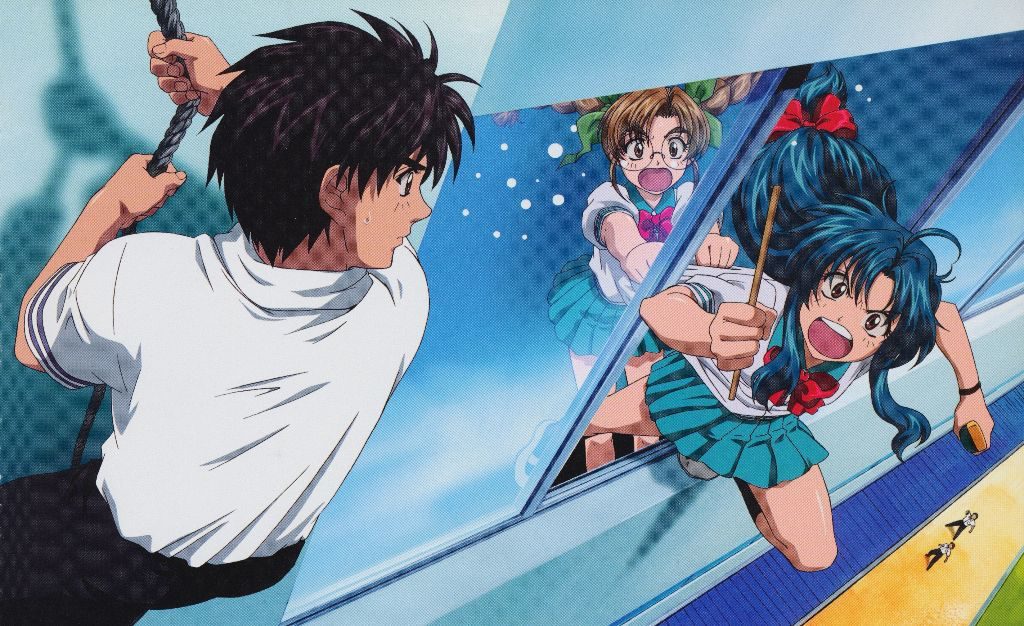
Full Metal Panic
What if the Cold War never ended and it led to an arms race that culminated in creating mechs?
Full Metal Panic isn’t just a school life mecha action romantic comedy, it is also an alternate history anime following the Cold War forcing an arms race that led to mecha-based combat. While Full Metal Panic does try to do a lot of things, unlike other anime series that bite off too much, it is successful in weaving them all together. It is what makes Full Metal Panic such a great watch even for people that don’t like mecha.
Unlike other anime that take place in what is technically an alternate history timeline, but them go on to ignore that to tell its story, Full Metal Panic does go on to weave the alternate history into the plot. It actually becomes quite acknowledged later on in the story with a pretty surprising reveal.
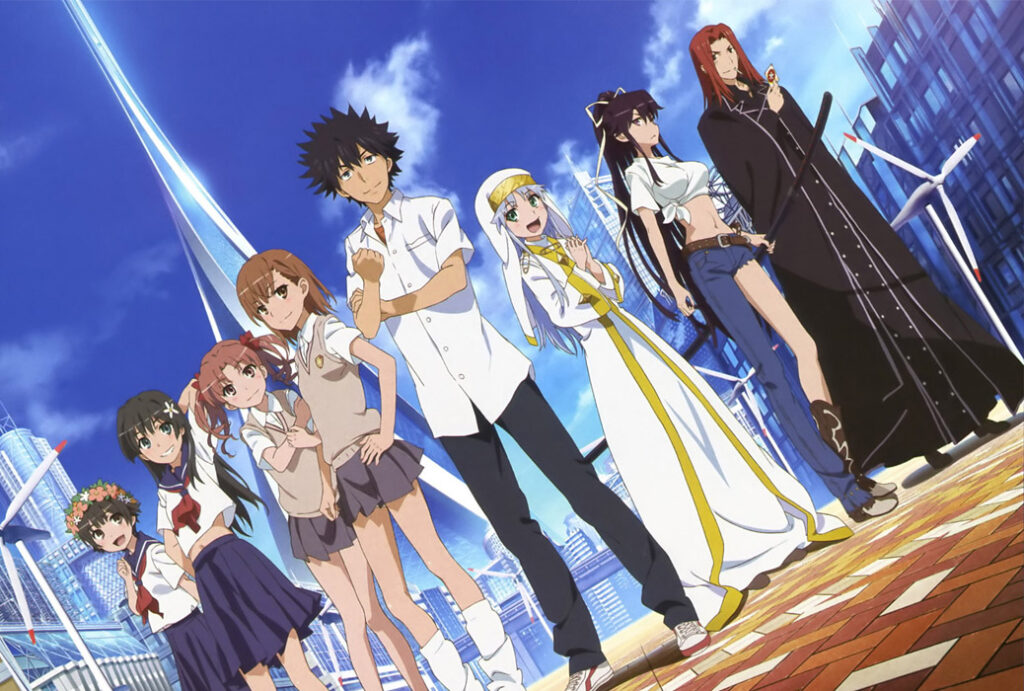
A Certain Magical Index
What if magic existed?
Like Fullmetal Alchemist works with a simple “what if” of alchemy reshaping the history of the world, A Certain Magical Index works with that same concept, but goes even broader by focusing on the unhappy coexistence of both magic and technology in the world.
While the series largely takes place in the fictional technology-focused Academy City that is under siege by the occasional magic-using organization, A Certain Magical Index goes on to explore the greater politics of the world in its later seasons.
It makes references to “feasible yet different” events from history and has a whole World War III arc centered around Church-controlled Russia, the United Kingdom and its animosity for France, the formerly Russian controlled nations under the banner of the Elizalina Alliance of Independent Nations, the Roman Catholic Churchs’ various influences, and Academy City caught in the middle of the mess.
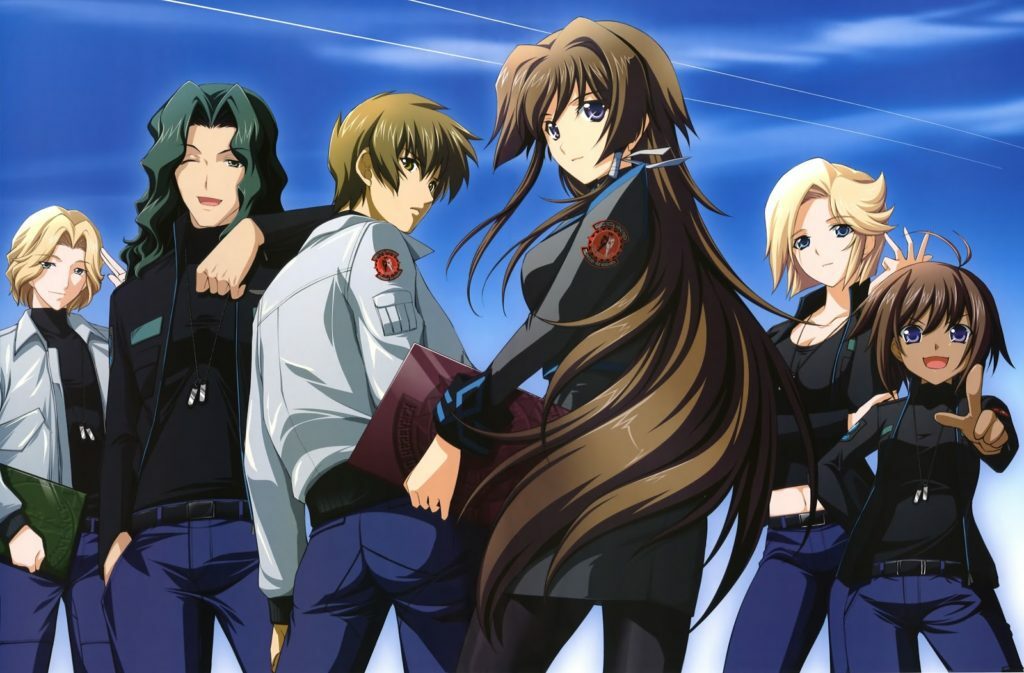
Muv-Luv
What if nations collaborated on space travel after World War II, found aliens on Mars, made first contact, and had to fight against them?
While the Muv-Luv anime series was not treated with as much love and care as its original visual novel series, it actually has quite the intricate alternate timeline that shows the small changes to history that culminate in everything falling into chaos because of aliens.
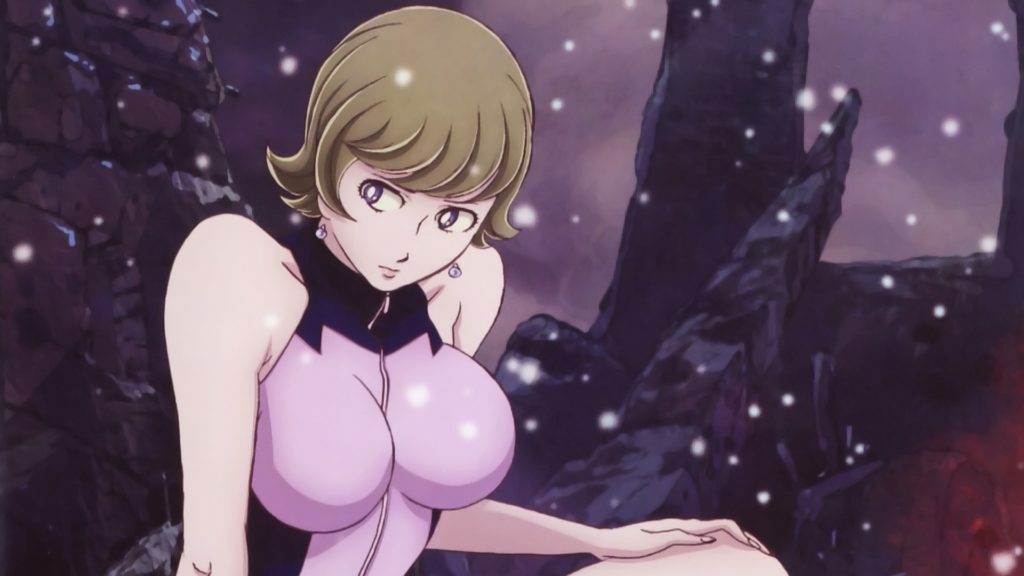
009-1
What if the Cold War just never ended?
Like Full Metal Panic, but more upfront with its alternate history setting, 009-1 takes place in a far-future world where the Cold War just kept on going.
Now, the entire world has been separated into either the East or West Block which still sits in a nuclear stalemate. Now, the two nations continue to technologically advance to stay ahead of their enemy.
The story proper follow a cyborg spy that works for neither nation as she carries out missions that come down from her superiors.
Do you have more anime that touch upon alternate history and alternate timelines? Let fans know in the comments section below.
